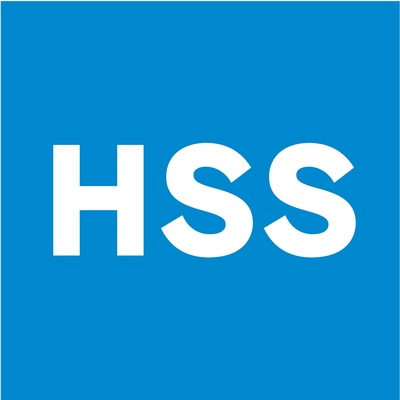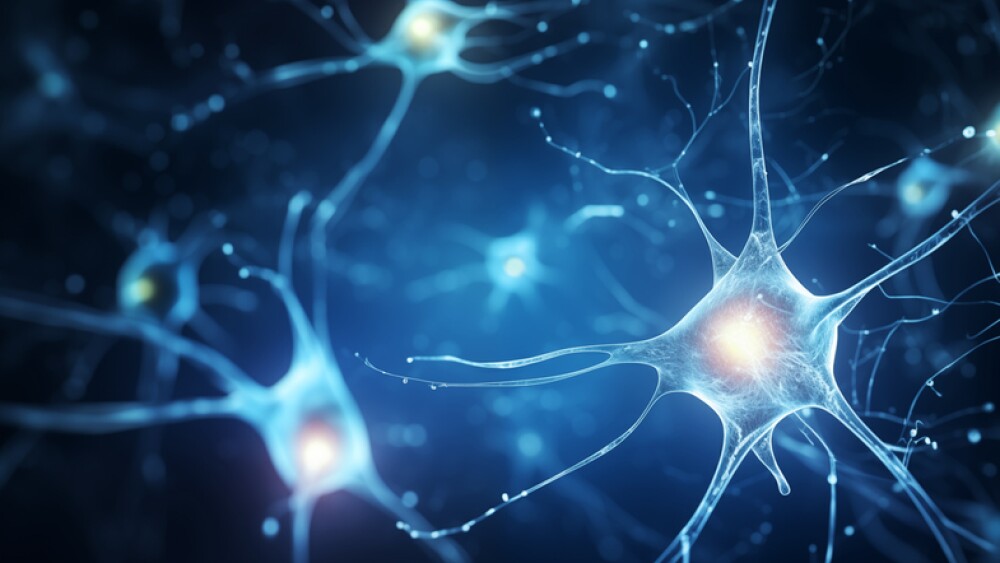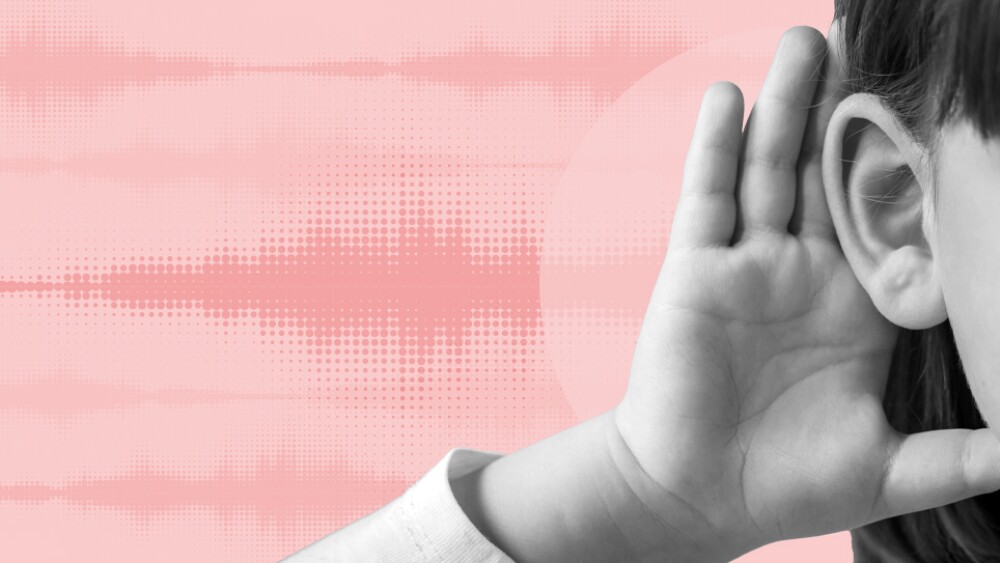Human growth hormone may prevent the loss of muscle strength after anterior cruciate ligament reconstruction, according to results from a pilot study conducted by investigators at Hospital for Special Surgery in collaboration with colleagues at the University of Michigan.
NEW YORK, May 26, 2020 /PRNewswire/ -- Human growth hormone (HGH) may prevent the loss of muscle strength after anterior cruciate ligament (ACL) reconstruction, according to results from a pilot study conducted by investigators at Hospital for Special Surgery (HSS) in collaboration with colleagues at the University of Michigan.
A torn ACL is a common knee injury suffered by one in 50 male athletes and one in 29 female athletes, on average. "Despite improvements in surgical techniques to reconstruct torn ACLs, muscle weakness remains a major limiting factor in returning athletes to their preinjury level of performance. Even after rehabilitation, many patients have muscles that are 30 to 40 percent weaker when they return to sports compared to their pre-surgery strength," says Christopher Mendias, PhD, ATC, an associate scientist in the Arthritis and Tissue Degeneration Program at HSS. "Inactivity during rest and recovery, which is needed to protect a surgically reconstructed ligament, promotes muscle weakness. Surgery can also induce local inflammation, which encourages muscle protein breakdown."
Dr. Mendias, the first author on the paper published May 26 in the American Journal of Sports Medicine, began working on the study when he was at the University of Michigan. After he moved to HSS, the study continued as a collaborative initiative between the two institutions.
The researchers obtained an investigational new drug exemption from the US Food & Drug Administration (FDA) to use HGH (somatropin) in the study. The drug is available only by prescription for treating growth hormone deficiency syndromes and cannot be used off-label without FDA approval. The side effects of the drug include carpal tunnel syndrome from fluid retention, altered blood sugar levels, joint aches, muscle pains, bruising at the injection site, tingling sensations and headaches.
As the biggest risk with HGH is the development of type 2 diabetes, a condition that involves elevated blood sugar levels, patients who already had diabetes were excluded from participating in the study. Researchers also excluded collegiate, professional or elite athletes from participating in the study, since HGH is currently listed as a banned substance by the World Anti-Doping Agency (WADA), the National Collegiate Athletic Association and other professional sports organizations.
Nineteen male athletes ages 18 to 35 with ACL tears who were scheduled to undergo ACL reconstruction at the University of Michigan were randomly assigned to self-inject HGH or a saline solution under the skin in the abdominal area twice daily over six weeks, starting one week before ACL reconstruction. The assignment to groups was blinded to patients and study investigators.
Researchers measured knee muscle strength and volume and patient-reported outcomes, including pain, quality of life, symptoms and sport and recreation function. They also analyzed biomarkers in blood samples two weeks before surgery and at follow-up visits over six months after ACL reconstruction and compared the results with those from blood samples provided by healthy patients without ACL tears at HSS.
Patients who were treated with HGH had 29 percent higher knee extension strength than patients in the placebo group, a statistically significant improvement. The use of HGH was not associated with changes in muscle volume or patient-reported outcome scores and had no effect on blood sugar levels. The treatments were well tolerated with no differences in adverse events between the HGH group and the placebo group.
Blood analyses showed that patients who had HGH treatments had a 2.1-fold increase in circulating insulin-like growth factor 1 (IGF1), a protein that plays an important role in muscle growth, and a 36 percent lower level of MMP3, an enzyme released by joint membranes during inflammation and an indirect marker of cartilage degradation.
"We observed a consistent reduction in MMP3 in the human growth hormone group from the first through the 12th post-operative weeks," says Dr. Mendias. "This finding suggests a potential protective effect of human growth hormone after ACL reconstruction and that we should look more closely at its potential for cartilage healing in further studies."
Although WADA and other sports agencies have banned the use of HGH by athletes, researchers believe that athletes could petition for a Therapeutic Use Exception, which would allow it for a medically appropriate reason. "We think using human growth hormone to prevent loss of muscle strength after ACL reconstruction would meet the therapeutic use exception guidelines," says Dr. Mendias. "Treatment occurs during a time when athletes are not playing due to their injuries. The goal is to prevent muscle weakness, not make athletes stronger than they were before their injuries. Any small performance-enhancing effects of human growth hormone seem to wear off quickly after stopping the medication."
People who experience an ACL tear are nine times more likely to develop painful, degenerative osteoarthritis later in life. "Preventing the loss of strength after ACL reconstruction with human growth hormone may help prevent the development or lessen the severity of osteoarthritis in the future," says Dr. Mendias.
"We are encouraged by the results of our pilot study, but before making clinical recommendations, we need to do larger studies testing higher doses of human growth hormone in both males and females," Dr. Mendias says. "We would also need to petition the FDA to approve the addition of orthopedic injuries as an on-label indication for the drug."
The study was supported by funding provided by the Mark Cuban Foundation and the National Institute of Arthritis and Musculoskeletal and Skin Disorders, a branch of the National Institutes of Health.
About HSS
HSS is the world's leading academic medical center focused on musculoskeletal health. At its core is Hospital for Special Surgery, nationally ranked No. 1 in orthopedics (for the tenth consecutive year), No. 3 in rheumatology by U.S. News & World Report (2019-2020), and named a leader in pediatric orthopedics by U.S. News & World Report "Best Children's Hospitals" list (2019-2020). Founded in 1863, the Hospital has the lowest complication and readmission rates in the nation for orthopedics, and among the lowest infection rates. HSS was the first in New York State to receive Magnet Recognition for Excellence in Nursing Service from the American Nurses Credentialing Center four consecutive times. The global standard total knee replacement was developed at HSS in 1969. An affiliate of Weill Cornell Medical College, HSS has a main campus in New York City and facilities in New Jersey, Connecticut and in the Long Island and Westchester County regions of New York State, as well as in Florida. In addition to patient care, HSS leads the field in research, innovation and education. The HSS Research Institute comprises 20 laboratories and 300 staff members focused on leading the advancement of musculoskeletal health through prevention of degeneration, tissue repair and tissue regeneration. The HSS Global Innovation Institute was formed in 2016 to realize the potential of new drugs, therapeutics and devices. The HSS Education Institute is a trusted leader in advancing musculoskeletal knowledge and research for physicians, nurses, allied health professionals, academic trainees, and consumers in more than 130 countries. Through HSS Global Ventures, the institution is collaborating with medical centers and other organizations to advance the quality and value of musculoskeletal care and to make world-class HSS care more widely accessible nationally and internationally. www.hss.edu.
![]() View original content to download multimedia:http://www.prnewswire.com/news-releases/human-growth-hormone-may-prevent-loss-of-muscle-strength-after-anterior-cruciate-ligament-reconstruction-301065173.html
View original content to download multimedia:http://www.prnewswire.com/news-releases/human-growth-hormone-may-prevent-loss-of-muscle-strength-after-anterior-cruciate-ligament-reconstruction-301065173.html
SOURCE Hospital for Special Surgery





